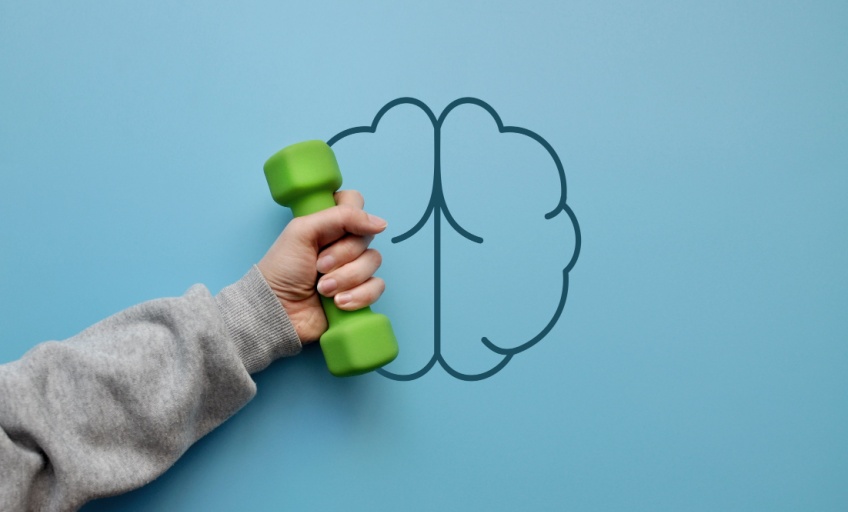We all know how important exercise is for keeping us physically healthy. But did you know that exercise can also help keep you mentally healthy? Any amount of exercise is likely to produce benefits. Experts recommend that adults get at least 2.5-5 hours of moderate physical activity or 1.25-2.5 hours of vigorous physical activity प्रति सप्ताह.
इनके बारे में जानें:
- Understanding the link between exercise and mental health
- The 7 benefits of regular exercise for mental well-being
- Finding the right exercise routine for your mental health
Understanding the link between exercise and mental health
Exercise has many benefits, both curative and preventive, for physical and mental health. ये Centers for Disease Control and Prevention (CDC) says “Regular physical activity is one of the most important things you can do for your health,” and everyone can benefit from it. According to a recent review, researchers have linked physical inactivity with more than 40 chronic conditions. Exercising seems to reduce the risk of developing mental illness. It also seems to help in treating some mental health conditions, like depression and anxiety. For example, for mild-moderate depression, research suggests physical activity can be as effective as antidepressants or psychological treatments like cognitive behavioral therapy. Exercise can also be a valuable addition to other treatment options. Often, people who exercise regularly do it simply because it makes them feel good. Exercise can boost your mood, concentration, and alertness. It can even help give you a positive outlook on life.
The 7 benefits of regular exercise for mental well-being
Let us look at the 7 benefits of exercise for mental health:
Better mood
Physical activity can help reduce anxiety, and this benefit can start right after a moderate or vigorous exercise session. It improves mental health and mood. The levels of chemicals in the brain, such as serotonin (stress hormones) and endorphins (feel-good hormones), change when you exercise. Long-term, regular exercise can also help reduce the risk of depression.
Increased self-esteem and confidence
Exercise can improve your sense of control, coping ability, and self-esteem. People who exercise regularly often report how good achieving a goal makes them feel. Exercising can make you feel more comfortable with yourself and increase your self-confidence. One of the most prominent ways exercise can boost your self-esteem is by making you look fit, among other benefits.
Improved sleep quality

एक्सरसाइज़ helps people sleep better, and good sleep helps you manage your mood. Some of the benefits can start immediately. Regular exercise can help by:
- Increasing the efficiency of sleep
- Improving sleep quality and deep sleep
- Reducing daytime drowsiness
- Reducing the need for sleep medication
Stress reduction
Any form of exercise, from aerobics to strength training to yoga, can act as a stress reliever. Physical activity boosts feel-good endorphins and distracts the mind from daily stresses. It can also lead to positive effects on your body – including your cardiovascular, digestive, and immune systems – by helping protect your body from the harmful effects of stress.
Improved cognitive functioning
Regular exercise can reduce the risk of डिमेंशिया / याद्दाश्त कमजोर होना और अल्ज़ाइमर की बीमारी in adults. In people over the age of 50 years, exercise also improves certain aspects of cognition, such as processing speed. Physical activity, cognitive activity (such as learning new skills), and eating a Mediterranean diet (a way of eating that focuses on healthy fats and plant-based foods) to promote “brain health” in older adults.
Helps with depression

Regular exercise can help with depression By:
- Releasing feel-good chemicals – Exercise increases the production of endorphins and serotonin, which are natural brain chemicals that can improve your mood.
- Distracting from negative thoughts – Exercise can help you take your mind off worries and negative thought patterns that can contribute to depression.
- Improving fitness – Exercise can help improve your fitness level, which can also help lift your mood.
Helps in reducing ADHD symptoms
Exercise can help reduce ADHD symptoms. It can:
- बढ़ाएं neurotransmitters like dopamine and serotonin to improve blood flow to the brain and help with focus and attention.
- Burn off extra energy and help with sleep.
- Improve motor skills and executive function.
- Reduce anxiety and depression.
- Improve social skills.
- Decrease impulsivity.
- Increase inhibitory control.
- Improve interpersonal relationships.
Finding the right exercise routine for your mental health
Apart from improving your physical and mental well-being, what else do you want to get out of being active? Ask yourself whether you would prefer being indoors or out, doing a group or individual activity, or trying a new sport. If sporty exercises make you feel uninspired – limit yourself to just one activity. Remember that going on a walk, doing housework, and gardening are all physical activities. Also, would you rather go alone or do an activity with a friend? Social support is a great motivator, and sharing your experiences, goals, and achievements will help you focus and stay enthusiastic. If physical activity is new, it’s best to gradually build up your ability. Focus on task goals, such as improving sports skills or stamina, rather than competition, and keep a record of your activity and review it to provide feedback on your progress. Find an exercise routine catering to your individuality and preferences.
- At home: You can do many activities without leaving your home. It can be as simple as pushing the mower with extra vigor or speeding up the housework.
- At work: You can get more active whether you are on your feet or sitting at a desk. Try using the stairs for journeys of fewer than four floors, walking or cycling a slightly longer route home, or using your lunch hour to take a brisk walk or exercise.
Regular exercise plays an important role in improving your mental health. Keeping in mind the above-mentioned benefits of exercise for mental health, ensure incorporating physical activity into your daily routine to enhance your mental health and overall well-being.
Stay tuned to the Activ Living Community. Keep up to date with the latest health tips and trends through expert videos, podcasts, articles, and much more on पोषण, फिटनेस, सचेतन, और लाइफस्टाइल से जुड़ी बीमारियां like Asthma, Blood Pressure, Cholesterol, and Diabetes. Activ Living ke saath sahi sehat ki shuruat ABHI karo.
You may also be interested in the following blogs:
- Healthy Minds, Happy Teens: 7 Ways To Support Mental Health
- 3 Bosu Ball Exercises For Superior Strength And Balance
Popular Searches
How to lower blood pressure | Fruits good for liver | Unhealthy foods | रागी के लाभ | बेसल मेटाबोलिक रेट | हाई ब्लड प्रेशर के लिए एक्यूप्रेशर पॉइंट्स | Ayurvedic medicine for blood pressure | How to control cholesterol at home | Homeopathy for Asthma | Biological Age | Home remedies for TB | Natural beta blockers | Negative effects of internet | Types of walking | ब्लड प्रेशर कैलकुलेटर | ब्लड शुगर कैलकुलेटर | BMI कैलकुलेटर





 1800-270-7000
1800-270-7000






